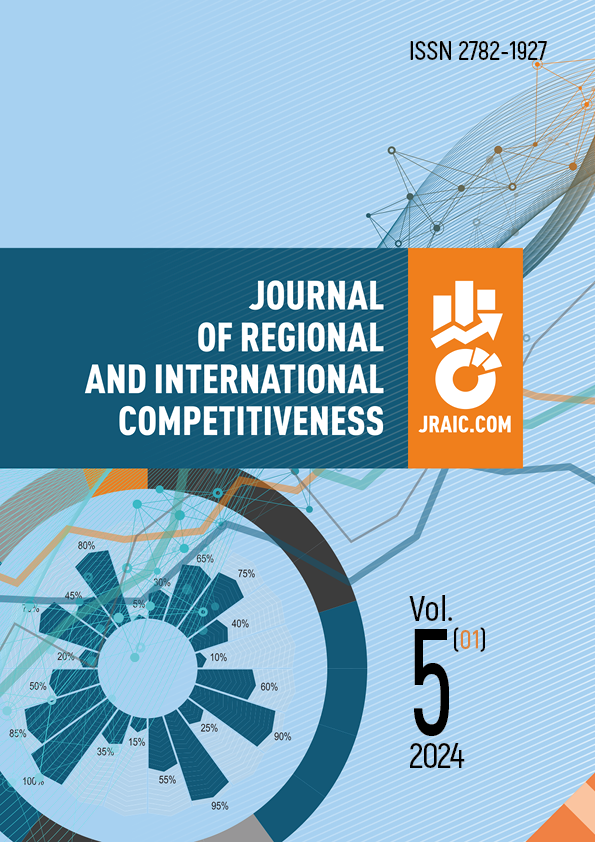INSTITUTE FOR ADVANCED TRAINING OF EXECUTIVES AND SPECIALISTS
Federal State University of Education
Moscow, Moscow, Russian Federation
The paper presents research on the problem of reducing poverty in Russian Federation. The purpose of the research is to assess the prospects for achieving the national goal of twofold poverty level reducing in Russia by 2030 compared to the 2017. However, in terms of dynamics to the approaches to the poverty, it will be possible to achieve the twofold poverty reduction by 2030 compared to the 2017. It can be implemented in accordance with Presidential Decree No. 474 on 21 July 2020. Moreover, it is not the problem solving; the measurement scale transformation is not the proper tool that can eliminate (or at least reduce) poverty in society. The practical significance of the research is the introduction of a differentiated progressive taxation scale and development of favourable conditions for the intensive development of high-tech and competitive production as the most effective tools for poverty reduction. It will cause an increase in the population’s income, strengthening of the national distributive and redistributive functions. Additionally, it allows ones’ to reduce the income gap between the richest and poorest segments of the population (reduction of the Gini index).
prospects assessment; national goal; poverty reduction; poverty rate
1. Theil, H. (1967). Economics and information theory. North-Holland.
2. Allison, P. D. (1978). Measures of Inequality. American Sociological Review, (43), 865-880.
3. Tebekin, A. V. (2023). The growth of average life expectancy as a factor of the global competitiveness of the Russian Federation. Journal of Regional and International Competitiveness, 4(2), 43-55. Retrieved from http://jraic.com›index.php/tor/issue/view/18
4. Kurdova, M. A., & Buraeva, D. A. (2017). The problem of poverty in modern Russia and possible ways to solve it. Vektor Ekonomiki, (11), 77 (in Russian).
5. Valyavsky, A. Yu., Lukashevichus, G. A., Manyushis, A. Yu., Petrov, V. S., & Tebekin, A. V. (2020). Fundamentals of crisis management (theory, methodology, practice). Moscow: MMU (in Russian).
6. Pechenaya, L. T., Tolkacheva, S. V., & Domarev, I. E. (2017). The problem of poverty in Russia and in the world: assessment methods, ways of reduction. Ekonomika: vchera, segodnya, zavtra, 7(6A), 78-100 (in Russian).
7. Seliverstov, A. S., Mitrofanov, D. E., Butskaya, A. A. et al. (2017). The problem of poverty in modern Russia and possible ways to solve it. Molodoi ucheniy, (7), 276-278 (in Russian).
8. Rudenko, D. Yu. (2013). Does economic growth solve the problem of poverty in Russia? Retrieved from https://www.hse.ru/data/2013/04/02/1294181612/4-10.pdf (accessed 09.10.2023) (in Russian).
9. Scone, T. (1997). Management accounting: how to use it to control a business. Moscow: Audit (in Russian).
10. Smith, A. (1993). A study on the nature and causes of the wealth of nations. (In 2 vols.). Moscow: Nauka (in Russian).
11. Tebekin, A. V., Mitropolskaya-Rodionova, N. V., & Khoreva, A. V. (2021). Assessment of the prospects for the implementation of strategic initiatives for the socio-economic development of the Russian Federation until 2030 in terms of ensuring sustainable population growth in the Russian Federation. Zhurnal issledovanij po upravleniyu, (6), 3-18 (in Russian).
12. Tikhonova, N. E., & Gorshkova, M. K. (Eds.). (2014). Poverty and the poor in modern Russia. Moscow: Ves mir (in Russian).
13. Urusova, A. A. (2019). Poverty reduction: analysis and solutions. Vestnik Evrazijskoj nauki, 11(6), 55 (in Russian). EDN: https://elibrary.ru/BRPMNX
14. Cherneva, R. I. (2012). Poverty reduction: analysis and solutions. Dajdzhest-finansy, (10), 61-67 (in Russian).



















